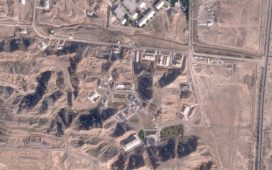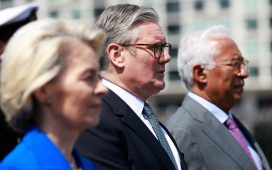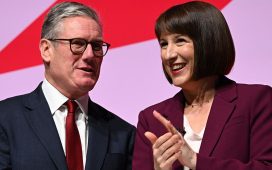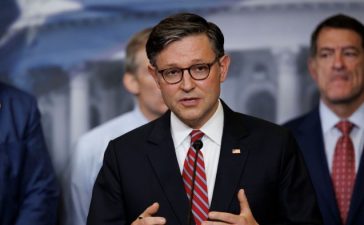
ishi Sunak is reportedly alarmed by the runaway cost of HS2 as he faces a Cabinet split over the potential axing of the rail project’s northern leg.
A growing number of senior Tories have warned the Prime Minister against the cancellation of HS2’s Birmingham to Manchester route.
Mr Sunak, who on Monday did nothing to quell fears he is preparing to either scrap or delay the leg, has told allies he is not prepared to watch the cost continue to rise, the Times reported.
The newspaper said he is concerned about a lack of cost controls and high salaries at the company overseeing the project after he was shown figures suggesting the overall price could top £100 billion.
Mr Sunak is also said to be considering terminating the line in a west London suburb rather than in Euston as planned to save money.
Tory former chancellor George Osborne and ex-Conservative deputy prime minister Lord Heseltine were among grandees warning that scrapping the Manchester route would be a “gross act of vandalism” which would mean “abandoning” the North and Midlands.
Another ex-chancellor, Lord Hammond, told The Times the project risked becoming a white elephant if it was not finished, while former transport secretary Patrick McLoughlin said that scaling it back would be “completely wrong”.
Some Cabinet ministers are also thought to be opposed, with The Independent citing a source close to government discussions on HS2 as describing Levelling Up Secretary Michael Gove and Transport Secretary Mark Harper as unhappy about the move.
A spokesperson for Mr Harper said the claim was “completely untrue”.
We’re absolutely committed to levelling up and spreading opportunity around the country, not just in the North but in the Midlands, in all other regions of our fantastic country
The Prime Minister is reportedly expected to delay a decision until after the Tory conference, being held in Manchester from Sunday.
He could announce a string of regional transport improvements in an effort to limit the political fallout over the future of HS2, including bringing forward Northern Powerhouse Rail between Manchester and Leeds, the Times and the Guardian reported.
Funding for a new underground rail station in Manchester could also be part of the package, according to the Times.
Downing Street said there is precedent to delaying aspects of the high-speed rail scheme because of “affordability pressures”, pointing towards high inflation.
Grant Shapps, recently promoted to Defence Secretary from his transport role, has said it would be “crazy” not to reconsider the project in considering spiralling costs.
But Andy Burnham, the mayor of Greater Manchester, demanded Mr Sunak does not curtail the project and argued it would be a “decision of epic proportions for our part of the world”.
The new US owners of Birmingham City football club joined a chorus of political and business criticism, warning that limiting HS2 would damage confidence in Government promises to deliver long-term plans.
The club’s chairman Tom Wagner wrote to the Prime Minister to warn that the move would hurt Birmingham’s economy and result in a “loss of investor trust”, according to the Financial Times.
Mr Sunak on Monday insisted he is “absolutely committed to levelling up”, as he refused to give any details over HS2’s future during a visit to a community centre in Hertfordshire.
He said that transport is “key” to that vision, “not just big rail projects, but also local projects, improving local bus services, fixing pot holes”.
Pressed yes or no whether it will go ahead, Mr Sunak insisted: “This kind of speculation that people are making is not right. We’ve got spades in the ground, we’re getting on and delivering.”
In October, the Government’s assessment of the cost for the Manchester leg was up to £71 billion.
Ministers said in June that £22.5 billion had been spent so far on the first leg to Birmingham, while around £2.3 billion had been spent on subsequent legs, with expenditure going towards labour as well as land.
All those figures were based on 2019 prices, so will have soared thanks to inflation alone, as the costs of materials and wages rose.










